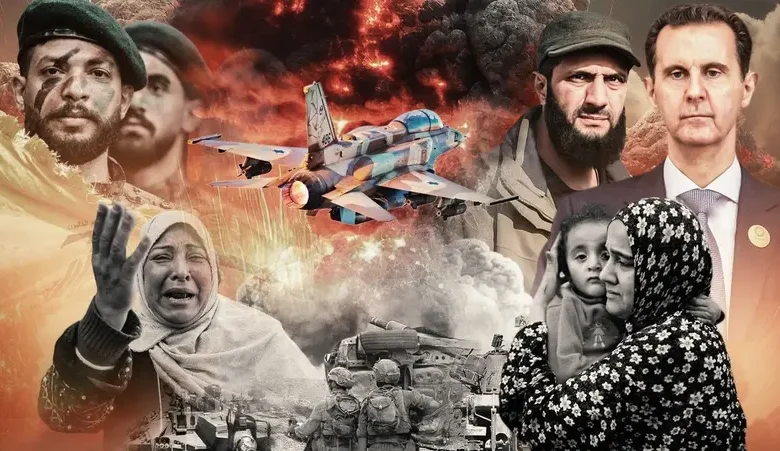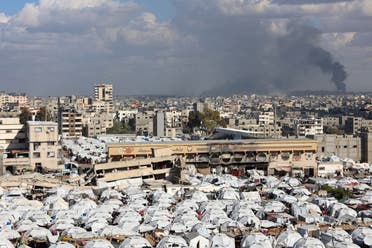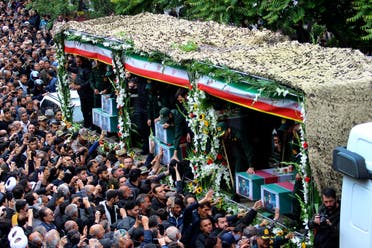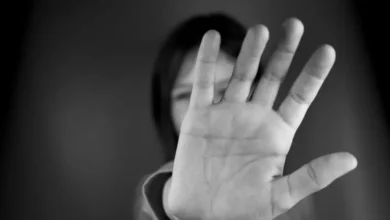2024 in review: Middle East faces al-Assad’s fall, Gaza’s endless war, regional conflict

During 2024, the Gaza war unravelled into one of the world’s biggest humanitarian crises as Israel’s ongoing offensive led to dwindling stocks of food, shelter and medicine, while its continued bombardment of the besieged enclave pushed the death toll past 45,500, many of them women and children. This figure accounts only for officially recorded deaths.

Meanwhile, Israel managed to kill key leaders of the Palestinian militant group Hamas, before turning its focus to Lebanon. This phase of Israel’s plan included doctored electronics exploding in Beirut, the south and other areas of Lebanon followed by a wave of assassinations targeting Hezbollah and the subsequent killing of the group’s leader Hassan Nasrallah.
The year closed with a shock toppling of Bashar al-Assad’s regime, bringing an end to decades of brutal, bloody and tyrannical rule.
Here are the top events that shaped the Middle East in 2024.
Gaza war grinds into second year

The Israel-Hamas war, triggered by the Palestinian group’s October 7, 2023, attack on Israel, dominated regional developments throughout 2024.
The conflict entered its second year with mounting Palestinian civilian casualties, entire neighborhoods decimated, essential services destroyed, hospitals attacked, and a humanitarian crisis that UN officials described as “catastrophic” while Amnesty International and Human Rights Watch labeled it as genocide. Doctors Without Borders described Israel’s actions in Gaza as the systematic “erasure of Palestinian life” from the area.
Defining moments of the year included Israel’s major operation in Rafah, southern Gaza, where hundreds of thousands of Palestinian civilians had been directed to evacuate from northern and central areas. This offensive forced many to seek refuge once again in schools, hospitals, and camps, which were subsequently targeted by airstrikes.
Since the start of the year, Gaza has faced widespread famine and the spread of epidemics, including the reemergence of polio after 25 years, which sent alarm bells ringing among health experts. A widespread vaccination campaign was led by the World Health Organization, targeting more than 640,000 children across the Palestinian territory. With impeded access, thousands of children remain unvaccinated in the north, according to the WHO.
By the year’s end, as the war-ravaged Palestinian territory grappled with winter weather, a group of United Nations rights experts issued a joint statement slamming Israel’s continuing offensive, highlighting alleged crimes against humanity committed by Israel “including murder, torture, sexual violence, and repeated forced displacement amounting to forcible transfer.”
They also noted alleged war crimes, including “indiscriminate attacks on civilians and civilian objects… the use of starvation as a weapon of war” and “collective punishment.”
Lebanon drawn into conflict

The Gaza war also spilled into Lebanon in 2024, sparking a mass exodus from the already beleaguered Middle Eastern nation, with thousands of civilians killed.
By September, Israel dramatically escalated attacks on Lebanon, targeting what it says were Hezbollah strongholds across the country. It said it was trying to secure its border with Lebanon, so tens of thousands of Israelis displaced by nearly a year of exchanges of fire with Hezbollah could return home.
Israel and Hezbollah had been trading fire and cross-border attacks since October 8, 2023, a day after Hezbollah’s Palestinian ally Hamas attacked southern Israel.
However, a full-blown shock offensive began with Israeli forces attacking Hezbollah’s communication systems, disabling hundreds of fighters whose operational pagers and radios exploded, and killing a significant number of senior Hezbollah commanders, decimating the group’s command structure.

Hezbollah intensified rocket attacks on northern Israel in response, but, on October 1, Israel boldly stepped up its escalation, launching a ground incursion into southern Lebanon, saying its forces had crossed the border to target Hezbollah positions. The same day, Iran’s Islamic Revolutionary Guard Corps (IRGC) said it launched attacks on Israel in retaliation for the killings of Hamas and Hezbollah leaders. Some 200 ballistic missiles were launched at Israel as a result.
The military campaign, aimed at pushing Hezbollah forces back from the border, marked Israel’s deepest incursion into Lebanon since 2006.
The operation triggered widespread displacement in southern Lebanon and raised fears of a full-scale regional war.
Nearly two months of intense fighting resulted in thousands of deaths in Lebanon before a two-month ceasefire was brokered on November 27 with the assistance of the US and France.
Israel eliminates key Hamas, Hezbollah figures
As Israel continued its war on two fronts, it targeted key figures at the helm of Hamas and Hezbollah. It killed former Hamas chief Ismail Haniyeh in a guesthouse in Tehran on July 31, reportedly by an explosive device that had been placed by Israeli operatives weeks before.

Haniyeh had been in Iran to attend the inauguration of the country’s new president Masoud Pezeshkian. Israel only claimed responsibility for the assassination in December.
A day before Haniyeh was killed, the Israeli military “eliminated” Hezbollah military commander Fuad Shukr in Lebanon. At the time Israeli Defense Minister Yoav Gallant said Shukr “has the blood of many Israelis on his hands…we have shown that the blood of our people has a price and that there is no place out of reach for our forces to this end.”
On September 27, Hezbollah leader Hassan Nasrallah was killed in an Israeli airstrike on Beirut’s southern suburbs, marking a transformative moment for the Middle East, before, just weeks later on October 17, Yahya Sinwar, the Hamas military chief and the mastermind behind the October 7 attacks, was killed by Israeli soldiers during an operation in Rafah.

Israeli Prime Minister Benjamin Netanyahu described Sinwar’s death as “the beginning of the end” of the war in Gaza. However, as Israeli airstrikes intensified across the region, truce negotiations between the conflicting sides stalled.
Iran-Israel attacks
In April, Iran launched a mass drone and missile attack against Israel in retaliation for an Israeli airstrike on Iran’s embassy compound in Damascus that killed seven members of Iran’s Islamic Revolutionary Guard Corps (IRGC), including two senior commanders. It marked the first time a direct military assault had been launched by Tehran on Israel. However, almost all drones were intercepted by the country’s Iron Dome system above Jerusalem and with the help of the US and allies.

Iran had billed the mass drone and missile attack as “Operation Honest Promise,” with Mohammad Bagheri, the Iranian armed forces’ chief of staff later telling state television that the operation was successfully completed and “achieved all its objectives,” despite experts questioning its effectiveness.
Death of Iran’s Raisi
In May the sudden death of then-Iranian President Ebrahim Raisi in a helicopter crash sent shockwaves across the Middle East. On a foggy Sunday in a remote area of northwestern Iran, a helicopter carrying Raisi, a hardline conservative cleric who assumed Iran’s presidency in 2021, as well as Foreign Minister Hossein Amir-Abdollahian, and other senior officials lost communication and crashed.

The incident occurred as the helicopter was returning to Tabriz after Raisi attended a joint inauguration of a dam with Azerbaijani President Ilham Aliyev.
Houthi-led Red Sea crisis continues
In 2024, the Israel-Houthi escalation continued to spill over onto the Red Sea, with offensives by Yemen’s Houthis – who claim solidarity with Hamas – continuing to affect one of the world’s key shipping routes.

The Houthis repeatedly have fired drones and missiles toward Israel in what they describe as acts of solidarity with Palestinians under Israeli fire in Gaza.
This week, Israel’s ambassador to the United Nations issued an ultimatum to Houthi militants, urging them to cease missile attacks on Israel. He warned that continuing their aggression would lead to the same “miserable fate” faced by Hamas, Hezbollah, and Syrian leader Bashar al-Assad.
Ambassador Danny Danon also directed a message to Tehran, warning that Israel possesses the capability to target any location in the Middle East, including Iran. He said Israel would not tolerate attacks from Iranian proxies.
Last week, Israeli Prime Minister Benjamin Netanyahu spelled out a warning for the Houthis – saying Israel was “just getting started” after Israeli airstrikes targeted several Houthi-linked sites in Yemen. These included the airport in Sanaa, ports along the country’s west coast, and two power plants.
Arrest warrants for Netanyahu
In November, the International Criminal Court issued arrest warrants for Israeli Prime Minister Benjamin Netanyahu and his former defense minister Yoav Gallant on suspicion of crimes against humanity and war crimes in Israel’s war on Hamas in Gaza. The warrants drew furious condemnation from Netanyahu and other Israeli politicians.

The court said on November 21 it had found “reasonable grounds” to believe Netanyahu and Gallant bore “criminal responsibility” for the war crime of starvation as a method of warfare, as well as the crimes against humanity of murder, persecution, and other inhumane acts.
Separately, Netanyahu appeared as a witness for the first time in his ongoing corruption trial, becoming the first sitting Israeli prime minister to face criminal charges. Prosecutors allege that Netanyahu provided regulatory favors worth approximately 1.8 billion shekels (around $500 million) to Bezeq Telecom Israel (BEZQ.TA) in exchange for favorable media coverage for himself and his wife, Sara, on a news website owned by the company’s former chairman.
Additionally, Netanyahu is accused of striking a deal with the owner of Israel’s Yedioth Ahronoth newspaper, promising improved coverage in return for advancing legislation that would hinder the growth of a competing publication.
Al-Assad’s fall reshapes Syria
On December 8, opposition forces led by Hayat Tahrir al-Sham (HTS) successfully ousted Bashar al-Assad, the deposed leader, after a rapid offensive in late November against al-Assad’s forces, during which several key cities, including Aleppo, Hama, and Homs, were captured in just 10 days.

The shock offensive ended the al-Assad dynasty which had ruled Syria for nearly half a century and brought an end to the civil war, which began in 2011 after Assad’s brutal crackdown on anti-government protesters.
Syria’s war spiraled rapidly from 2011 into a major civil conflict that has killed more than 500,000 people and displaced millions. More than one in four Syrians now live in extreme poverty, according to the World Bank.
Al-Assad’s departure to Russia, after decades in power, created a power vacuum that various factions have rushed to fill.
Since the overthrow of al-Assad and the release of prisoners from detention centers there have been rising demands from Syrians for the prosecution of those responsible for atrocities and killings while he was in power.










